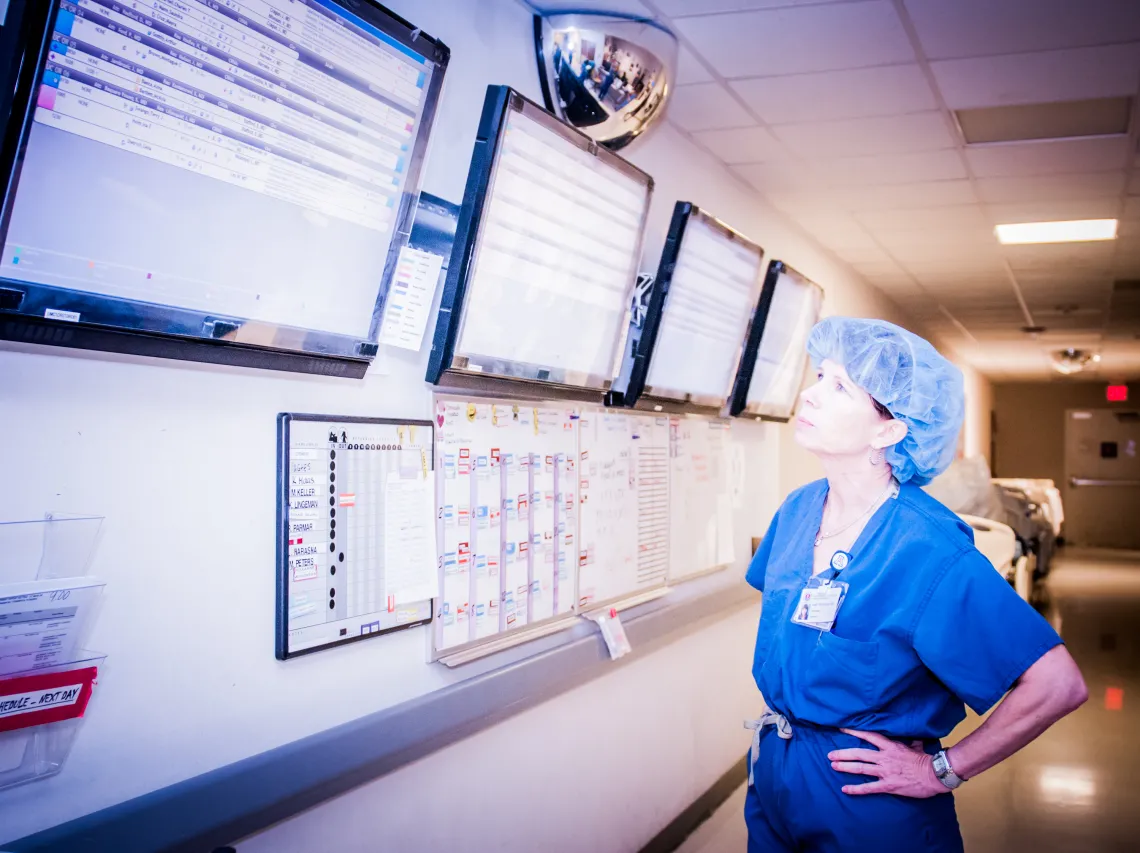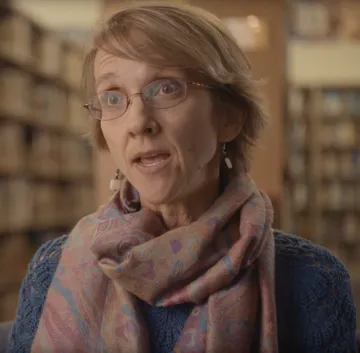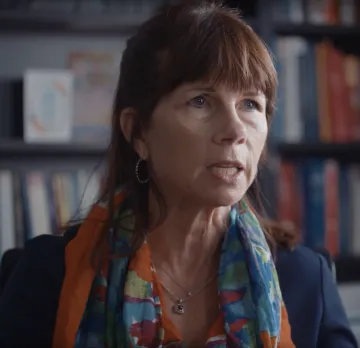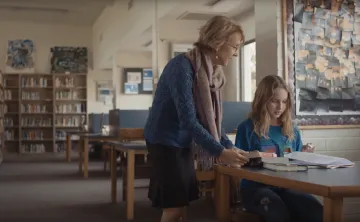A Journey in Choice: Beth Cain's Story


What started as a routine screening for Denton, Tex.-native Beth Cain quickly became cause for concern when Beth’s doctor noticed some suspicious spots on her mammogram.
After a biopsy procedure, it was confirmed: Beth had breast cancer. Or, invasive lobular carcinoma, to be exact.
As with most patients, the phrase Invasive lobular carcinoma meant little to Beth. Her limited understanding of her diagnosis was only exacerbated by the fact that, as she continued to visit her doctor for follow-up appointments and additional screenings, her prognosis only seemed to become worse, her treatment plan more daunting.
Beth’s doctor initially advised that she have a double mastectomy to prevent future relapses. However, even without fully understanding her diagnosis, Beth instinctively felt this advice was misguided.
"I didn’t feel as if I were being treated as a whole patient, a whole person," said Beth. "I wanted to beat cancer, but I wanted to beat it on my terms, and I wanted to beat it in a less invasive way than to have my body parts removed."
Thus, Beth set out to find a new doctor. She began her search in nearby Dallas but was quickly discouraged when she was unable to connect with an actual person to make an appointment. After a series of frustrating runarounds and encounters with not-so-user-friendly online portals, she called the University of Arizona Cancer Center (UACC) and got Beth High on the phone. High was a breast navigator with UACC, a type of cancer care coordinator appointed to serve as an advocate for patients and a liaison between patients and their care team throughout their cancer journeys.
"We‘re not just treating a disease; we‘re treating a whole person. Maybe it’s a mother who’s single with three kids and lives far away. How can we coordinate her care so that it’s easier on her and she can get what she needs without going bankrupt?" said Beth High. "We work very hard to get resources to patients and make sure that all of their needs are taken care of."
Speaking to High was the first time in the several weeks since her diagnosis that Beth felt hope. Not only had she finally gotten a person on the phone, but she was also reassured by High’s calm and competent countenance and the promise of a personalized approach to her care. High was also able to get Beth in to see Dr. Leigh Neumayer, renowned breast surgeon and chair of the University of Arizona Department of Surgery, that very same week.
Dr. Neumayer promised a radically different approach to Beth’s care than did her previous doctor. Understanding that initially jumping to mastectomy is often a jerk reaction to fear and a misguided effort in regaining control, Dr. Neumayer emphasized choice in her treatment plan. While Beth’s diagnosis might have been out of her control, Beth could still have control over the small decisions affecting her cancer.

"Bilateral mastectomies are on the rise, even for women who don’t need them. It’s driven largely by fear. [Breast cancer patients] are feeling fine, they have absolutely no health problems, they go and get what’s supposed to be a screening test, and the next thing they know, they‘re being told they have a life-threatening disease. And it just doesn’t compute," said Dr. Neumayer. "So almost every woman goes through a stage where they think 'I can control this.' And my control is going to be to cut off both my breasts, because I don’t need them anymore and right now they‘re trying to kill me."
“No woman can control whether or not she gets breast cancer,” Dr. Neumayer continued. “So, if I can give them control over other decisions, that’s what I want to do.”
Immersed in an academic setting, Dr. Neumayer also understood the importance of educating her patients on their conditions and treatment options. She provided Beth with educational resources, including an explainer video, to help her better understand her cancer.
“I have to say, that was the best explanation I’ve ever heard of breast cancer,” said Beth. “It was not only informative, but it helped me understand the disease I was going to be grappling with, and it also helped me understand that here was a woman who really knew her material. She was very knowledgeable and very trustworthy. I immediately felt a connection to her and wanted to visit with her about different treatment options than what I had already been offered.”
Even with 9 hours and 600 miles between them, Beth knew she had found the right doctor for her care. But what drew her to Banner University Medicine and UA Surgery even more was the emphasis on a collaborative, holistic approach. As the largest specialty group in the state, Banner provided Beth with access to an entire team dedicated to her care, from medical and radiation oncologists to social workers, genetic counselors, and nurse navigator Beth High.
The entire cancer care team reviewed Beth’s case, settling on a personalized, multidisciplinary plan of action for her treatment. The first step was for Beth to undergo an MRI-guided biopsy to determine the stage of her cancer. The results of the test confirmed Beth’s initial suspicion: a double mastectomy was unnecessary. Instead, Beth’s treatment plan would consist of a lumpectomy paired with radiation therapy. Beth was relieved.
As she began her treatment, Beth was continually struck by the compassion and expertise that went into her care. Shortly before entering the OR for her lumpectomy, Beth overheard Dr. Neumayer talking to one of her students, actively engaging them in Beth’s case by asking pointed questions about the procedure and their personal recommendations for Beth’s care.
“I knew I was going to be ok. I felt very safe,” said Beth, tears in her eyes. “I felt like, not only was I in the hands of one really master surgeon, but I was in the hands of other learners who were becoming master surgeons. Anesthesiologists, radiologists, everyone had come together to make sure that I was going to be around to watch my kids graduate from college.”

Just a few months out from her procedure, Beth Cain is feeling like herself again. Now a native of Tucson, Ariz., where she received her care, she works as a librarian for the Gregory School and enjoys staying active through hiking and running and basking in the beauty of Tucson’s desert landscape. She still has a few additional hurdles to face in her treatment, but her prognosis is positive.
“I have to say that my cancer journey has been really easy in a lot of ways,” said Beth. “I almost feel a little guilty sometimes, because it’s been so smooth. I’ve recovered quickly.”

